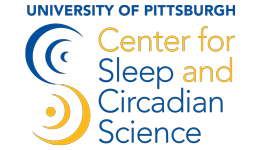Stephen Smagula, PhD
Assistant Professor
Department of Psychiatry
3811 O’Hara Street, Room E-1121
Pittsburgh, PA 15213
E: sfs26@pitt.edu
T: 412-246-6413
F: 412-246-5300
Read More
Education:
- BS, Neuroscience, Lafayette College (Easton, PA), 2009
- MS, Neuroscience and Education, Teachers College Columbia University (New York, NY), 2010
- PhD, Epidemiology, University of Pittsburgh Graduate School of Public Health (Pittsburgh, PA), 2014
- Postdoctoral Fellowship, Late-Life T32, University of Pittsburgh, 2015-2017
- Postdoctoral Fellowship, Sleep Medicine T32, University of Pittsburgh, 2017
Research Interests:
Dr. Smagula’s research focuses on understanding how 24-hour sleep-wake patterns influence the mechanisms underlying late-life depression. His past work investigated phenotypic heterogeneity in major depressive disorder among older adults, and in particular, the neurobiological and clinical determinants of response to pharmacological therapy. He has also contributed to literature on how sleep changes with aging. Dr. Smagula is currently investigating the risk architecture of depression among family caregivers of people with dementia.
Selected Publications:
- Smagula SF, Beach S, Rosso AL, Newman AB, Schulz R. (in press). Brain structural markers and caregiving characteristics as interacting correlates of caregiving strain. American Journal of Geriatric Psychiatry.
- Smagula SF, Krafty RT, Taylor BJ, Martire LM, Schulz R, & Hall MH. (in press). Rest-activity rhythm and sleep characteristics associated with depression symptom severity in strained dementia caregivers. Journal of Sleep Research.
- Smagula SF, Ancoli-Israel S, Blackwell T, Boudreau R, Stefanick M, Paudel M, Stone KL, Cauley JA. (2015). Circadian rest-activity rhythms predict future increases in depressive symptoms among community-dwelling older men. American Journal of Geriatric Psychiatry, 23(5): 495-505. doi: 10.1016/j.jagp.2014.06.007.
- Smagula SF, Stone KL, Fabio A, Cauley JA. (2016). Risk factors for sleep disturbances in older adults: evidence from prospective studies. Sleep Medicine Reviews, 25:21-30. doi: http://dx.doi.org/10.1016/j.smrv.2015.01.003.
- Karim HT, Andreescu C, Tudorascu D, Smagula SF, Butters MA, Karp JF, Reynolds CF, Aizenstein HJ. (2017). Intrinsic functional connectivity in late-life depression: trajectories over the course of pharmacotherapy in remitters and non-remitters. Molecular Psychiatry, 22:450-457.
- Kaneriya SH*, Robbins-Welty GA*, Smagula SF*, Karp JF, Butters MA, Lenze EJ, Mulsant BH, Blumberger D, Anderson SJ, Dew MA, Lotrich FE, Aizenstein HJ, Diniz BS, Reynolds CF. (2016). Predictors and moderators of remission with aripiprazole augmentation in treatment-resistant late-life depression. JAMA Psychiatry, 73(4):329-36.*denotes shared first-authorship with medical student mentees;
- Smagula SF, Butters MA, Anderson SJ, Lenze EK, Dew MA, Mulsant, BH, Lotrich FE, Aizenstein H, Reynolds CF. (2015). Antidepressant response trajectories and associated clinical prognostic factors in late-life depression. JAMA Psychiatry, 72(10):1021-1028. doi: 10.1001/jamapsychiatry .2015.1324.



